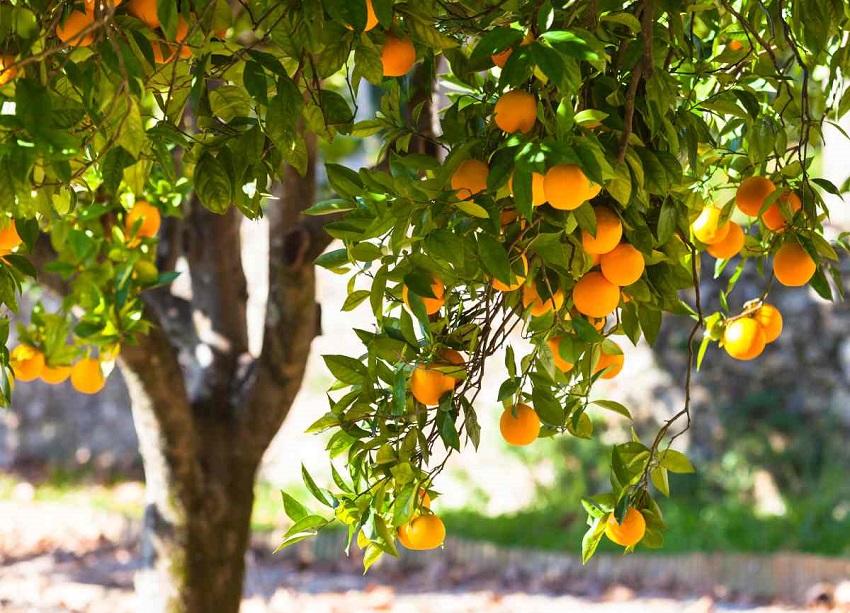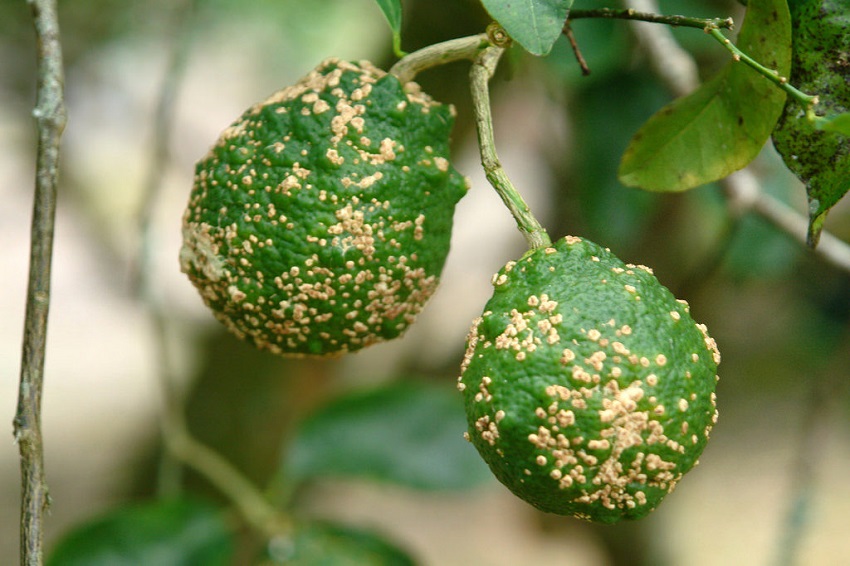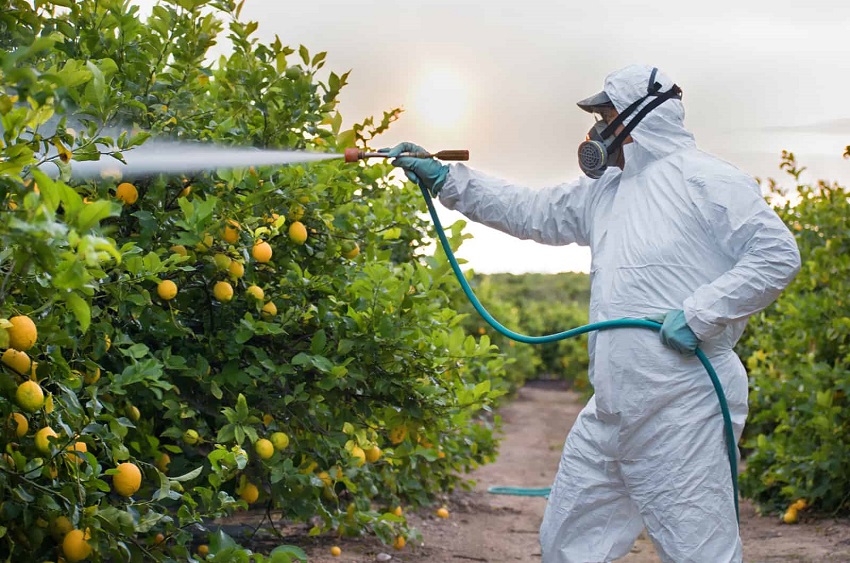How Old Do Lemon Trees Get?

If you’ve ever wondered about the lifespan of lemon trees, you’re not alone. Lemon trees are a popular choice for home gardens and orchards due to their fragrant blossoms and tart, juicy fruits. In fact, understanding lemon tree growth stages is essential to ensuring their longevity. In this article, we will delve into the life cycle of lemon trees and explore how long they can live, factors that influence their longevity, and tips for keeping them healthy and productive. So grab a refreshing glass of lemonade and let’s dive into the world of lemon trees!
The Life Cycle of Lemon Trees
Lemon trees, like all plants, go through a life cycle that begins with germination and ends with senescence or natural death. Understanding the stages of a lemon tree’s life cycle can help you provide the care and nutrients it needs at each stage, ensuring its longevity and bountiful harvests.
1. Germination
The life of a lemon tree begins with the germination of its seed. Lemon seeds have a hard outer shell that protects the embryo inside. When conditions are favorable, such as adequate moisture and warmth, the seed absorbs water and triggers the germination process. The embryo swells, and a small root emerges, seeking nutrients and anchoring the young tree into the soil.
2. Seedling Stage
Once the lemon seed germinates, it enters the seedling stage. During this stage, the young tree develops its first set of true leaves and begins to grow vigorously. It is vital to provide adequate sunlight, water, and nutrition to support the seedling’s healthy growth. The seedling stage typically lasts for several months until the tree reaches a height of 3 to 4 feet.
3. Young Tree Stage
After the seedling stage, the lemon tree transitions into the young tree stage. During this stage, the tree continues to grow taller and develops more branches. It is essential to establish a strong framework by pruning the tree to encourage proper branch structure and airflow. Young lemon trees require regular watering and fertilization to support their growth.
4. Mature Tree Stage
As the lemon tree matures, it enters the productive phase known as the mature tree stage. At this stage, the tree will bear flowers and produce fruit. The exact age at which a lemon tree becomes mature depends on various factors, including the tree’s species, growing conditions, and care practices. On average, lemon trees start bearing fruit at around three to five years old.
5. Senescence
Like all living organisms, lemon trees eventually reach their natural end, known as senescence. Senescence refers to the aging process and eventual death of the tree. The lifespan of a lemon tree can vary widely depending on several factors, including the tree’s health, growing conditions, and disease susceptibility. In general, lemon trees can live for several decades, with some specimens reported to live up to 50 years or longer.
Factors Influencing the Longevity of Lemon Trees
While lemon trees have the potential to live for several decades, various factors can impact their longevity. Understanding these factors can help you provide the optimal growing conditions and care necessary to ensure the tree’s health and longevity.
1. Growing Conditions
The growing conditions play a crucial role in determining the lifespan of a lemon tree. Lemon trees thrive in warm and subtropical climates with full sun exposure. They prefer well-draining soil that is rich in organic matter. Proper irrigation and regular fertilization are also important for sustaining healthy growth and maximizing the tree’s lifespan.
Read more: Can You Grow a Potato in a Jar?
2. Disease and Pest Management
Diseases and pests can significantly impact the health and lifespan of lemon trees. Common diseases that affect lemon trees include citrus canker, citrus greening, and fungal infections. Regular inspection, timely treatment, and proper management practices, such as pruning affected branches, can help control diseases. Additionally, implementing pest control measures, including natural predators or organic insecticides, can help deter common pests like aphids and scale insects.
3. Pruning and Training
Proper pruning and training techniques can extend the lifespan of a lemon tree. Regular pruning helps maintain an open canopy structure, promoting airflow and reducing the risk of disease. Removing dead or diseased branches and shaping the tree to encourage upward growth can improve its overall health and productivity.
4. Nutrition and Watering
Providing adequate nutrition and watering is essential for the long-term health of lemon trees. Fertilize the tree with a citrus-specific fertilizer to ensure it receives the necessary nutrients, such as nitrogen, phosphorus, and potassium. Water the tree deeply but infrequently to encourage deep root growth and prevent waterlogging, which can lead to root rot.
5. Climate and Weather Conditions
Extreme weather conditions, such as freezing temperatures or prolonged droughts, can significantly impact the longevity of lemon trees. While some lemon tree varieties can tolerate brief periods of cold, prolonged exposure to freezing temperatures can cause damage or even kill the tree. Similarly, extended drought periods can stress the tree and reduce its lifespan. Protecting the tree from extreme weather and ensuring adequate irrigation during dry spells can help mitigate these risks.
Tips for Caring for Lemon Trees
Now that we understand the life cycle and factors influencing the lifespan of lemon trees let’s explore some practical tips for keeping your lemon tree healthy and productive throughout its life.
1. Provide Adequate Sunlight
Lemon trees require at least 6-8 hours of direct sunlight daily. Ensure that you plant your lemon tree in a location that provides ample sunlight. If needed, you can supplement natural sunlight with artificial grow lights, especially in colder or more shaded regions.
2. Regularly Water the Tree
Lemon trees require consistent and deep watering. Avoid over-watering, as excessive moisture can lead to root rot. Water the tree deeply and allow the soil to slightly dry out between watering sessions. Mulching around the base of the tree can help retain moisture and regulate soil temperature.
3. Prune Regularly
Pruning is essential for maintaining the health and structure of your lemon tree. Regularly remove dead, damaged, or diseased branches to improve airflow and prevent the spread of pathogens. Thin out excess branches to ensure adequate sunlight penetration and encourage better fruit production.
4. Apply Fertilizer
To promote healthy growth and fruit production, fertilize your lemon tree regularly with a balanced citrus-specific fertilizer. Follow the manufacturer’s instructions for application rates and timing. Avoid over-fertilizing, as excessive nutrients can result in lush foliage but reduced fruit production.
5. Monitor for Pests and Diseases
Regularly inspect your lemon tree for signs of pests or diseases. Early detection is key to preventing the spread and minimizing damage. Use organic pest control methods whenever possible to avoid harmful chemical residues on the fruit. Consult with a local arborist or horticulturist if you’re unsure about pest or disease management.
FAQs (Frequently Asked Questions)
- How long does it take for a lemon tree to bear fruit?
Lemon trees typically begin to bear fruit at around three to five years of age, but this can vary depending on the citrus variety and growing conditions.
- Can I grow a lemon tree in a pot?
Yes, lemon trees can be grown in pots, making them suitable for small gardens or balconies. Choose a dwarf or patio variety and provide adequate sunlight, water, and nutrition for successful growth.
- What are common pests that affect lemon trees?
Common pests that can affect lemon trees include aphids, scale insects, citrus leaf miners, and spider mites. Regular inspection and implementing organic pest control measures can help prevent infestations.
- Can I grow a lemon tree in a cold climate?
While lemon trees thrive in warm and subtropical climates, some varieties can tolerate colder temperatures for short periods. Consider choosing cold-hardy lemon varieties or utilizing protective measures like wrapping the tree or using frost covers during freezing weather.
- How can I promote more abundant fruit production in my lemon tree?
To encourage better fruit production, ensure the tree receives adequate sunlight, water, and nutrition. Prune the tree to maintain an open canopy, and provide consistent care and maintenance throughout the growing season.
Conclusion
Lemon trees hold the promise of fragrant blossoms and abundant, tangy fruits. Understanding the life cycle and factors influencing the lifespan of lemon trees is essential for keeping them healthy and productive. By providing optimal growing conditions, timely care, and consistent maintenance, you can enjoy the beauty and bountiful harvests of lemon trees for many years to come. So, whether you’re planting a lemon tree in your garden or caring for an existing one, remember that with proper care and attention, lemon trees can thrive and continue to delight you with their fruits for decades.







